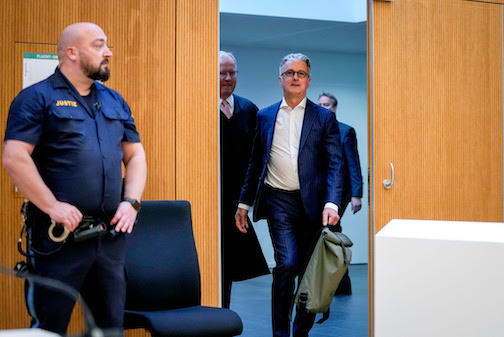Ex-Audi boss Stadler opens up on role in diesel engine scam

By Roland Losch, Christof Rührmair and Jacqueline Melcher, dpa
MUNICH – Former Audi boss Rupert Stadler has confessed at his fraud trial about his role in the diesel emissions scandal after maintaining his innocence for years.
The Munich Regional Court had offered Stadler the prospect of a suspended sentence if he made a comprehensive admission of guilt and paid a fine of €1.1 million ($1.2 million).
Stadler’s trial is one of many in Germany linked to the so-called “dieselgate” scandal that rocked the top echelons the Volkswagen Group, which includes Audi.
Stadler had said at the beginning of May that he would make the confession in order to avoid going to prison.
Cars with diesel engines had been manipulated by an automatic shut-off system in such a way that they complied with exhaust emission limits on the test bench, but not on the road.
Stadler, 60, is not accused of having instigated the manipulation of the cars.
However, he allowed the sale of these vehicles to continue until the beginning of 2018, even though he knew that the exhaust emission values could have been manipulated.
With a “yes” he confirmed a statement read out by his defence lawyer before the court on Tuesday. In it, Stadler admitted wrongdoing.
The statement acknowledged he had the opportunity to intervene but failed to do so.
With the confession delivered on the 168th day of the trial, Stadler became the first member of the Volkswagen group board to admit in court to the charge of fraud by omission in the diesel scandal.
The statement read by his lawyer said Stadler regretted his choices and that “more care” had been needed. The trial, which has been ongoing since September 2020, could end with Stadler’s formal sentencing as soon as next month.
The former head of Audi engine development, Wolfgang Hatz, who is also charged, and two of his senior engineers already confessed that they had arranged for the engine software to be designed.
With the defeat devices, the cars complied with the nitrogen oxide limits during tests, but not on the road. According to the court, Hatz and one engineer can also expect a suspended sentence.
The case against the other engineer has already been dropped in exchange for a fine.

